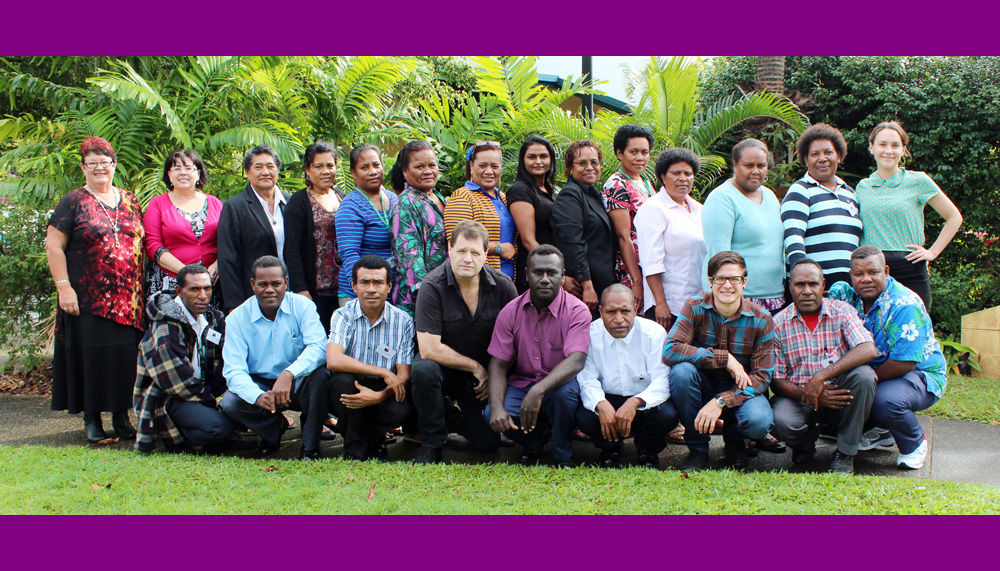Nurses and community workers from six Pacific Island nations are completing a much-needed mental health course courtesy of an Australia Awards Fellowship.
Eighteen nurses and community health workers from six Pacific Island nations – Papua New Guinea, Solomon Islands, Fiji, Palau, Cook Islands and Kiribati – are completing a four-week mental health course at James Cook University (JCU) in Cairns.
The course, funded by an Australia Awards Fellowship, answers a plea from Papua New Guinea nurses for further training in the mental health sector.
Kim Usher, professor of nursing at JCU and director of the WHO Collaborating Centre for Nursing and Midwifery Education and Research Capacity-Building, said nurses from these areas were working or enrolled in mental health without any formal training and there was a clear lack of opportunity for professional development.
“There is a shortage of qualified mental health workers and a shortage of ongoing training opportunities in the Pacific,” Usher said. “We cannot train everyone from every country so we have targeted this course at nurses and professionals who will then go back to their own countries to teach others.”
The course, which started on July 1, provides a mental health overview through a variety of lectures, workshops, clinical visits to public and private facilities, mental health first aid course and presentations by people living with mental illnesses and mental health support programs.
Participants also undertook education training – examining teaching and learning principles, as well as completing courses around developing posters and presentations in order to be able to pass on the knowledge learnt throughout the course.
“We are hoping they take away skills in the area of mental health nursing as well as new ideas they see in practice here that they feel they can implement in their own countries,” Usher said.
“Our concern for the future is to give professional people the tools and skills they need to go back to their homes and improve the mental healthcare of others.”
Papua New Guinea department of health mental health research and training officer Toku Moliyola said that developing countries like PNG have limited human and educational resources and nurses are looking after large patient numbers.
For example Laloki, a mental health facility on the outskirts of Port Moresby, has 49 beds but there are sometimes up to 80 patients receiving care.
Nurses shared stories of making time and resources stretch as far as possible, as well as the strong family based culture that exists throughout the regions, where family often take on the management of mental health and trauma.
Moliyola, who works at a ministerial level in Papua New Guinea, has a background in policy but hopes he can work together with his colleagues with a clinical background to deliver the information and services to the community.
“My hope is to go back and disseminate this information as much as possible,” he said. “First of all to the mental health workers that are working across Papua New Guinea and then to possibly extend the information to other health workers and eventually to reach the community.
“We will then focus on reaching those that can read and write who will be able to become our partners in mental health. They will be able to get the information from us to be able to look after people in the remote communities.”
Australia Awards Fellowships are funded by the Australian Government to develop skills and knowledge and build links between Australia, neighbouring countries and the broader international community.
Do you have an idea for a story?Email [email protected]
 Aged Care Insite Australia's number one aged care news source
Aged Care Insite Australia's number one aged care news source

